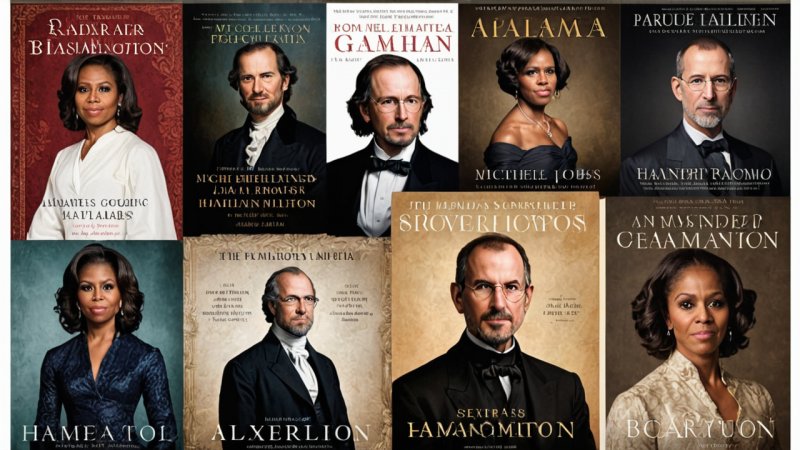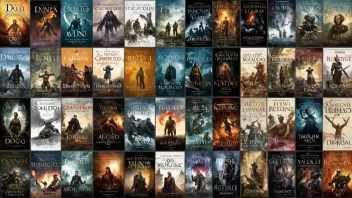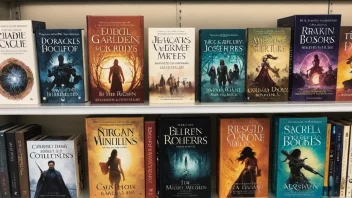Biographies have long captivated readers, offering a window into the lives of extraordinary individuals who have shaped history. The genre of historical biographies, in particular, stands out as a collection of narratives that not only chronicles the lives of significant figures but also provides insights into the times in which they lived. From political leaders and activists to artists and scientists, these stories resonate with lessons of resilience, vision, and humanity. In this article, we will explore some of the bestselling historical biographies that have inspired readers around the globe. Through detailed analyses, we will uncover the reasons behind their popularity and the impact they continue to have on our understanding of history.
The Power of Biographies
Biographies serve as powerful tools for education and reflection, allowing readers to engage with historical events through the lens of individual experiences. They provide context to the societal, cultural, and political environments that shaped their subjects. By delving into the lives of remarkable figures, readers gain not just knowledge about history but also inspiration to confront their own challenges and pursue their passions. This connection to real-life stories can be particularly motivating, as it reminds us that extraordinary achievements are often rooted in perseverance and a desire for change.
Key Elements of Compelling Biographies
While each biography is unique, certain elements often contribute to their success. Here are some key characteristics that make historical biographies compelling:
- Thorough Research: Successful biographies are grounded in meticulous research, drawing from letters, diaries, interviews, and historical documents to present an accurate portrayal of the subject's life.
- Narrative Style: The way a biography is written can significantly impact its appeal. A well-crafted narrative that reads like a story, with engaging prose and vivid descriptions, can draw readers in and keep them hooked.
- Contextualization: Providing historical context is crucial for readers to understand the significance of the subject's life and actions. Good biographies place individuals within the broader tapestry of their time.
- Humanization: Readers connect with biographies that humanize their subjects, showcasing not just their achievements but also their struggles, flaws, and personal relationships.
Notable Bestselling Historical Biographies
Several historical biographies have reached bestseller status, resonating with readers for their depth and insight. Below, we explore some notable examples that continue to inspire.
1. "Alexander Hamilton" by Ron Chernow
Ron Chernow's biography of Alexander Hamilton not only revitalized interest in the Founding Father but also became the basis for the blockbuster musical "Hamilton." Chernow meticulously reconstructs Hamilton's life, from his humble beginnings in the Caribbean to his role as a key architect of American financial systems. The biography delves into Hamilton's complex personality, his fierce ambition, and the conflicts that defined his relationships with contemporaries like Thomas Jefferson and John Adams. Readers are drawn to Hamilton's tenacity and his vision for America, making this biography a standout in the genre.
2. "The Wright Brothers" by David McCullough
In "The Wright Brothers," David McCullough chronicles the lives of Orville and Wilbur Wright, the pioneers of aviation. This biography is a testament to innovation and determination, detailing how the brothers overcame personal and professional obstacles to achieve their dream of flight. McCullough's engaging storytelling captures the trials they faced and the exhilarating moments of success. Through their story, readers learn about the importance of perseverance and the spirit of discovery.
3. "Becoming" by Michelle Obama
Michelle Obama's memoir, "Becoming," offers a deeply personal look at her life as a lawyer, mother, and First Lady of the United States. While technically a memoir, it fits seamlessly into the historical biography genre as it chronicles a significant period in American history. Obama's reflections on her upbringing, experiences in the White House, and advocacy work resonate with readers. Her story of self-discovery and empowerment inspires many, showing that one's voice can create change.
4. "Steve Jobs" by Walter Isaacson
Walter Isaacson's biography of Steve Jobs provides an in-depth look at the life of the co-founder of Apple Inc. Based on over forty interviews with Jobs and extensive research, the biography reveals the complexities of Jobs' character—his brilliance, creativity, and sometimes abrasive demeanor. Isaacson's narrative highlights Jobs' relentless pursuit of excellence and his impact on technology and design. Readers gain insight into the mind of a visionary who transformed multiple industries.
5. "The Immortal Life of Henrietta Lacks" by Rebecca Skloot
This biography intertwines the story of Henrietta Lacks, a poor African American woman whose cells were taken without her knowledge, with the broader themes of medical ethics, race, and scientific advancement. Rebecca Skloot's narrative not only honors Lacks' legacy but also raises important questions about consent and the exploitation of marginalized individuals in medical research. The book's compelling storytelling makes it a modern classic in the genre of historical biography.
Literary Trends in Historical Biographies
As the genre of historical biographies evolves, several trends have emerged, reflecting changes in reader preferences and societal values:
- Diversity and Representation: There is a growing demand for biographies that feature diverse voices and perspectives. Readers are increasingly interested in the lives of individuals from various backgrounds, including women, people of color, and those from underrepresented communities.
- Intersectionality: Many contemporary biographies explore the intersections of race, gender, and class, offering a more nuanced understanding of historical figures and their impact on society.
- Personal Narratives: There is a trend toward more personal and intimate narratives that focus on the emotional and psychological aspects of a subject's life, allowing readers to connect on a deeper level.
Conclusion
Bestselling historical biographies continue to captivate readers by bringing the past to life through the stories of remarkable individuals. These narratives inspire, educate, and remind us of the resilience of the human spirit. As we explore the lives of those who have shaped history, we gain valuable insights that resonate in our own lives. Whether through the lens of political leaders, innovators, or everyday heroes, historical biographies illuminate the paths we can choose and the legacies we can leave behind. As readers, we are invited to reflect on our own lives and consider how we, too, might inspire future generations.






